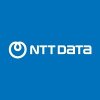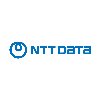Filter interviews by
Accenture Software Analyst Interview Questions and Answers
16 Interview questions
Assess candidate's ability to address HR challenges by evaluating their communication skills, problem-solving abilities, conflict resolution techniques, and knowledge of HR policies.
Evaluate their communication skills through role-playing scenarios or case studies involving HR issues.
Assess their problem-solving abilities by presenting them with hypothetical HR challenges and asking how they would approach them.
Ob...
Oops concept refers to Object-Oriented Programming concepts such as Inheritance, Polymorphism, Encapsulation, and Abstraction.
Oops concept stands for Object-Oriented Programming concepts
Includes Inheritance, Polymorphism, Encapsulation, and Abstraction
Used in programming languages like Java, C++, Python
Helps in creating modular, reusable, and maintainable code
Search retrieves the first occurrence of a specified value, while search all retrieves all occurrences.
Search returns the index of the first occurrence of a specified value in a string, array, or object
Search all returns an array of all indices of the specified value in a string, array, or object
Search is more efficient for finding the first occurrence, while search all is useful for finding all occurrences
My expected CTC is negotiable based on the role, responsibilities, and benefits offered by the company.
My expected CTC is based on my experience, skills, and market standards.
I am open to discussing the salary package during the negotiation process.
I value the overall compensation package, including benefits and growth opportunities.
What people are saying about Accenture





Remove duplicate values from ArrayList
Create a HashSet from the ArrayList to remove duplicates
Convert the HashSet back to ArrayList
Use Collections.sort() to sort the ArrayList if needed
Exception handling is a programming construct that manages errors and exceptional conditions gracefully.
Use try-catch blocks to handle exceptions. Example: try { riskyCode(); } catch (Exception e) { handleError(e); }
Always catch specific exceptions before general ones to avoid masking errors. Example: catch (IOException e) before catch (Exception e).
Use finally blocks for cleanup code that must run regardless of s...
Handling faults and errors in API development process and configuring fault policies for securing APIs
Implement proper error handling mechanisms in the API code to catch and handle faults and errors
Use logging and monitoring tools to track errors and faults in real-time
Configure fault policies such as retry mechanisms, circuit breakers, and fallback options to handle errors gracefully
Secure APIs by implementing au...
Database connections in JDeveloper are configured in the application's deployment descriptor file. WSDLs are XML-based descriptions of web services.
Database connections in JDeveloper are configured in the application's deployment descriptor file, typically web.xml or persistence.xml.
The configuration includes details such as database URL, username, password, and driver class.
WSDLs (Web Services Description Languag...
Annotations in Spring Boot, immutability of strings, try-catch exceptions, and collections
Annotations in Spring Boot: @RestController, @RequestMapping, @Autowired, @Component, etc.
String immutability: Strings are immutable to ensure data integrity and security
Try-catch exceptions: Used to handle and manage exceptions in code execution
Collections: Data structures like List, Set, Map, etc. to store and manipulate gr...
Different types of testing include unit testing, integration testing, system testing, and acceptance testing.
Unit testing focuses on testing individual components or units of code.
Integration testing verifies the interaction between different components.
System testing ensures the entire system works as expected.
Acceptance testing validates if the system meets the user's requirements.
OOPs stands for Object-Oriented...
Accenture Software Analyst Interview Experiences
16 interviews found
I applied via Company Website and was interviewed in Dec 2024. There were 4 interview rounds.
Aptitude tests conducted during interviews evaluate a candidate's skills and abilities to ascertain whether they are well-suited for a specific role.
A group discussion test during an interview evaluates a candidate's communication, leadership, and time management abilities.
A case study test for an interview is a business-oriented scenario that candidates must analyze and resolve during the interview.
(2 Questions)
- Q1. HR tests for interviews assess a candidate's ability to solve problems and perform HR-related tasks
- Q2. How can you assess a candidate's ability to address HR challenges in the workplace?
- Ans.
Assess candidate's ability to address HR challenges by evaluating their communication skills, problem-solving abilities, conflict resolution techniques, and knowledge of HR policies.
Evaluate their communication skills through role-playing scenarios or case studies involving HR issues.
Assess their problem-solving abilities by presenting them with hypothetical HR challenges and asking how they would approach them.
Observe...
Interview Preparation Tips
- Your career goals
I applied via LinkedIn and was interviewed in Jul 2024. There were 3 interview rounds.
It was easy, just revise the aptitude
(1 Question)
- Q1. Mainly on resume based interview
(1 Question)
- Q1. Hr questions commonly asked
Interview Preparation Tips
(1 Question)
- Q1. Tech interview regarding java developement
(2 Questions)
- Q1. Why are you leaving your current company ?
- Q2. For better opportunity to utilize my skill set
(2 Questions)
- Q1. Pre compilation
- Q2. Difference between search and search all
- Ans.
Search retrieves the first occurrence of a specified value, while search all retrieves all occurrences.
Search returns the index of the first occurrence of a specified value in a string, array, or object
Search all returns an array of all indices of the specified value in a string, array, or object
Search is more efficient for finding the first occurrence, while search all is useful for finding all occurrences
Skills evaluated in this interview
It was moderate and easy to crack.
I applied via Approached by Company and was interviewed before Jan 2024. There were 3 interview rounds.
(2 Questions)
- Q1. Explain about the adapters i have used in my project(Mostly domain or project specific)
- Q2. How do we handle faults and errors in our API development process and also how do we configure fault policies and secure the APIs
- Ans.
Handling faults and errors in API development process and configuring fault policies for securing APIs
Implement proper error handling mechanisms in the API code to catch and handle faults and errors
Use logging and monitoring tools to track errors and faults in real-time
Configure fault policies such as retry mechanisms, circuit breakers, and fallback options to handle errors gracefully
Secure APIs by implementing authent...
(3 Questions)
- Q1. I was asked several additional questions that were generally related to the middleware domain.
- Q2. When and how do we configure database connections in JDeveloper, and what are the differences between WSDLs?
- Ans.
Database connections in JDeveloper are configured in the application's deployment descriptor file. WSDLs are XML-based descriptions of web services.
Database connections in JDeveloper are configured in the application's deployment descriptor file, typically web.xml or persistence.xml.
The configuration includes details such as database URL, username, password, and driver class.
WSDLs (Web Services Description Language) ar...
- Q3. Implementation of Exception handling
- Ans.
Exception handling is a programming concept that deals with errors during program execution.
Use try-catch blocks to handle exceptions in code.
Throw exceptions to indicate errors in code.
Use finally block to execute code regardless of whether an exception is thrown or not.
(1 Question)
- Q1. What were your reasons for leaving your previous company, and what necessary documents were discussed during the interview?
Interview Preparation Tips

(1 Question)
- Q1. Collections, oops, spring
(1 Question)
- Q1. Programming, collections, spring
(1 Question)
- Q1. Salary expectations ,any other holding offers, over all experience
Interview Preparation Tips

(3 Questions)
- Q1. Expalin OOPS Concept
- Ans.
OOPS is a programming paradigm based on the concept of objects that interact with each other to perform tasks.
OOPS stands for Object-Oriented Programming System
It focuses on encapsulation, inheritance, and polymorphism
Encapsulation is the process of hiding data and methods within a class
Inheritance allows a class to inherit properties and methods from another class
Polymorphism allows objects to take on multiple forms o...
- Q2. Exaplin the solid prnciple
- Ans.
SOLID is a set of principles for object-oriented programming to make software more maintainable, scalable, and robust.
S - Single Responsibility Principle: A class should have only one reason to change.
O - Open-Closed Principle: Software entities should be open for extension but closed for modification.
L - Liskov Substitution Principle: Subtypes must be substitutable for their base types.
I - Interface Segregation Princi...
- Q3. Different Array Methods and Properties i.n C#
- Ans.
Array methods and properties in C#
Length property returns the number of elements in an array
IndexOf method returns the index of the first occurrence of a specified element
Sort method sorts the elements in an array in ascending order
Reverse method reverses the order of the elements in an array
Interview Preparation Tips
Skills evaluated in this interview
I applied via Naukri.com and was interviewed before Oct 2023. There were 2 interview rounds.
45 mins mcq test related to webforms , mvc , core , sql
(2 Questions)
- Q1. Asked about virtual class
- Q2. And interface related questions
I applied via Naukri.com and was interviewed before Jul 2023. There were 3 interview rounds.
(2 Questions)
- Q1. What is opps concept
- Ans.
Oops concept refers to Object-Oriented Programming concepts such as Inheritance, Polymorphism, Encapsulation, and Abstraction.
Oops concept stands for Object-Oriented Programming concepts
Includes Inheritance, Polymorphism, Encapsulation, and Abstraction
Used in programming languages like Java, C++, Python
Helps in creating modular, reusable, and maintainable code
- Q2. How did you deploy your project
- Ans.
I deployed my project using a combination of manual and automated deployment processes.
Utilized continuous integration and continuous deployment (CI/CD) pipelines to automate the deployment process
Deployed the project to cloud platforms such as AWS, Azure, or Google Cloud
Performed manual deployment steps for certain components or configurations
Used containerization technologies like Docker for easy deployment and scala...
It's an 90 minutes online test
(2 Questions)
- Q1. Salary expectation
- Q2. Faculty discussion
Interview Preparation Tips
Accenture Interview FAQs
Some of the top questions asked at the Accenture Software Analyst interview -
Tell us how to improve this page.
Accenture Interviews By Designations
- Accenture Associate Software Engineer Interview Questions
- Accenture Application Development Analyst Interview Questions
- Accenture Application Developer Interview Questions
- Accenture Software Developer Interview Questions
- Accenture Software Engineer Interview Questions
- Accenture Analyst Interview Questions
- Accenture Application Development Associate Interview Questions
- Accenture Senior Analyst Interview Questions
- Show more
Interview Questions for Popular Designations
Overall Interview Experience Rating
based on 11 interview experiences
Difficulty level
Duration
Software Analyst Interview Questions from Similar Companies
Accenture Software Analyst Reviews and Ratings
based on 113 reviews
Rating in categories
|
Application Development Analyst
39.3k
salaries
| ₹4.8 L/yr - ₹11 L/yr |
|
Application Development - Senior Analyst
27.7k
salaries
| ₹8.2 L/yr - ₹16 L/yr |
|
Team Lead
26.5k
salaries
| ₹12.6 L/yr - ₹22.4 L/yr |
|
Senior Analyst
19.5k
salaries
| ₹9 L/yr - ₹15.7 L/yr |
|
Senior Software Engineer
18.5k
salaries
| ₹10.4 L/yr - ₹18 L/yr |

TCS

Cognizant

Capgemini

Infosys
- Home >
- Interviews >
- Accenture Interview Questions














